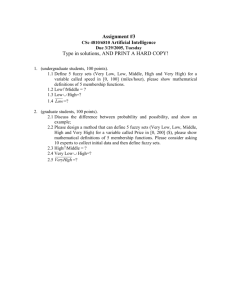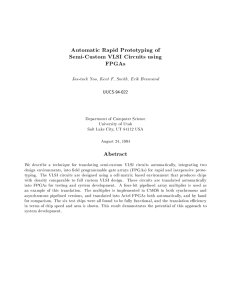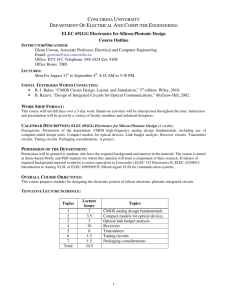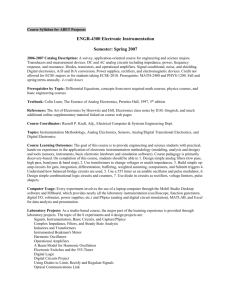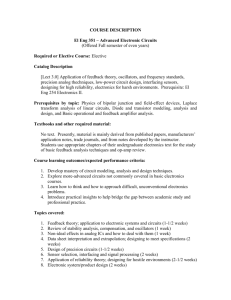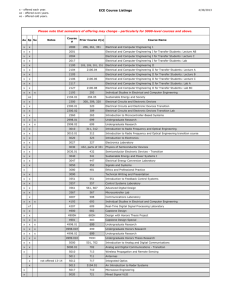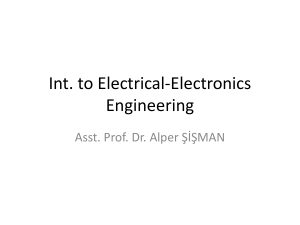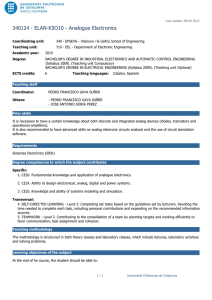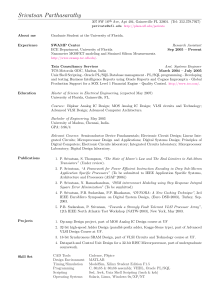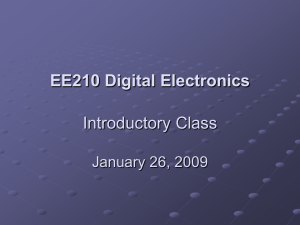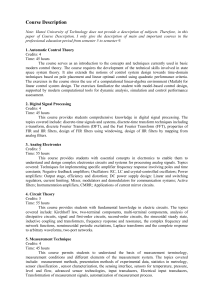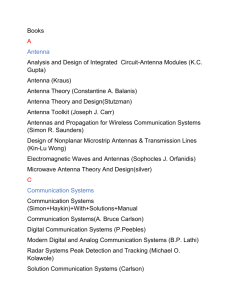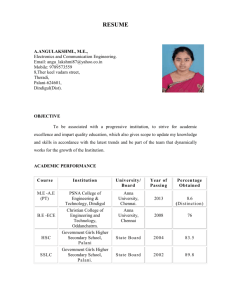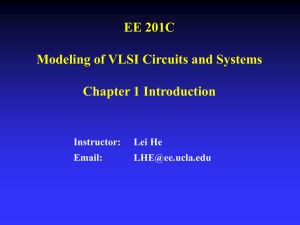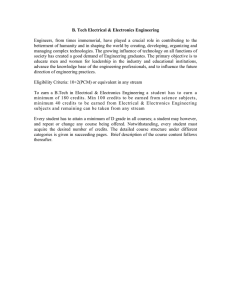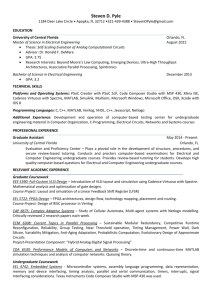Department of Electrical Engineering
advertisement
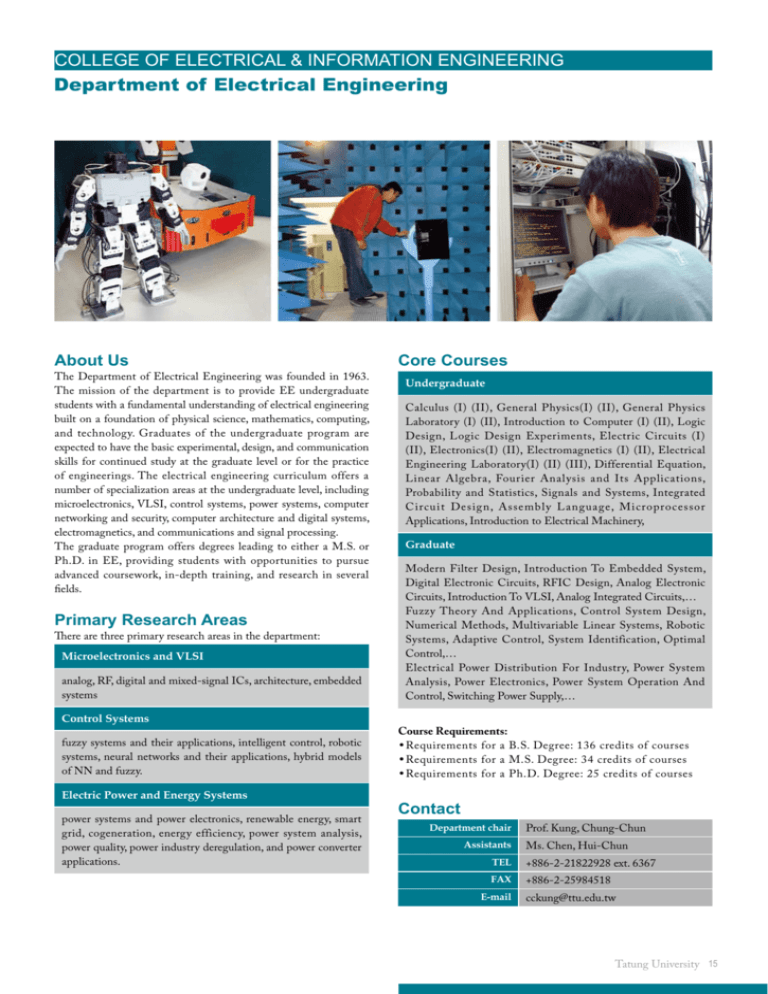
COLLEGE OF ELECTRICAL & INFORMATION ENGINEERING Department of Electrical Engineering About Us The Department of Electrical Engineering was founded in 1963. The mission of the department is to provide EE undergraduate students with a fundamental understanding of electrical engineering built on a foundation of physical science, mathematics, computing, and technology. Graduates of the undergraduate program are expected to have the basic experimental, design, and communication skills for continued study at the graduate level or for the practice of engineerings. The electrical engineering curriculum offers a number of specialization areas at the undergraduate level, including microelectronics, VLSI, control systems, power systems, computer networking and security, computer architecture and digital systems, electromagnetics, and communications and signal processing. The graduate program offers degrees leading to either a M.S. or Ph.D. in EE, providing students with opportunities to pursue advanced coursework, in-depth training, and research in several fields. Primary Research Areas There are three primary research areas in the department: Microelectronics and VLSI analog, RF, digital and mixed-signal ICs, architecture, embedded systems Control Systems fuzzy systems and their applications, intelligent control, robotic systems, neural networks and their applications, hybrid models of NN and fuzzy. Electric Power and Energy Systems power systems and power electronics, renewable energy, smart grid, cogeneration, energy efficiency, power system analysis, power quality, power industry deregulation, and power converter applications. Core Courses Undergraduate Calculus (I) (II), General Physics(I) (II), General Physics Laboratory (I) (II), Introduction to Computer (I) (II), Logic Design, Logic Design Experiments, Electric Circuits (I) (II), Electronics(I) (II), Electromagnetics (I) (II), Electrical Engineering Laboratory(I) (II) (III), Differential Equation, Linear Algebra, Fourier Analysis and Its Applications, Probability and Statistics, Signals and Systems, Integrated Circuit Design, Assembl y Language, Microprocessor Applications, Introduction to Electrical Machinery, Graduate Modern Filter Design, Introduction To Embedded System, Digital Electronic Circuits, RFIC Design, Analog Electronic Circuits, Introduction To VLSI, Analog Integrated Circuits,… Fuzzy Theory And Applications, Control System Design, Numerical Methods, Multivariable Linear Systems, Robotic Systems, Adaptive Control, System Identification, Optimal Control,… Electrical Power Distribution For Industry, Power System Analysis, Power Electronics, Power System Operation And Control, Switching Power Supply,… Course Requirements: •Requirements for a B.S. Degree: 136 credits of courses •Requirements for a M.S. Degree: 34 credits of courses •Requirements for a Ph.D. Degree: 25 credits of courses Contact Department chair Assistants TEL FAX E-mail Prof. Kung, Chung-Chun Ms. Chen, Hui-Chun +886-2-21822928 ext. 6367 +886-2-25984518 cckung@ttu.edu.tw Tatung University 15

